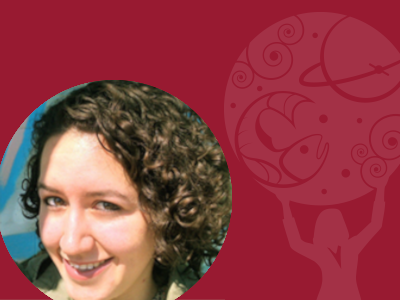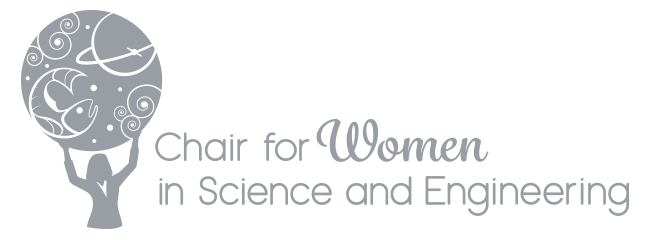“Mathematics, to me is . . .A way of thinking. Magnificent. Familiar yet endlessly strange. Musical. A problem-solving tool. Alluring. An infinite series of puzzles. A language.”
Adina's Biography
Adina Goldberg is currently pursuing an M.A.Sc. at the University of Toronto. Her research, supervised by Dr. Stark C. Draper, is concerned with the joint design of linear biometric systems with privacy and security considerations. She recently had her very first conference paper accepted for publication. Although her affiliation is with the department of Electrical and Computer Engineering, she likes to think of herself as an applied mathematician.
Adina graduated from Queen’s University in 2013 with a B.Sc.E. in Mathematics and Engineering. Better known to Queen’s students as “Apple Math”, the program allowed her to study engineering concepts in a very theoretical and rigorous way. Although the engineering courses were more interactive and practical, Adina always most looked forward to her mathematics courses.
During her undergrad degree, she spent two summers working as a research student on applied math problems. In 2011 she was selected to attend the Kupcinet-Getz International Summer Science School at the Weizmann Institute in Israel, where she worked on combinatorial game theory under Dr. Aviezri Fraenkel. Then, in 2012, she received an undergraduate student research assistantship from NSERC to work on distributed stochastic control under Dr. Serdar Yüksel.
The other two summers, she spent working with kids in nature. Although Toronto advertises itself as a city within a park, Adina is always planning her next trip out of the city.
Other than math and being outdoors, one of Adina’s biggest passions is teaching. She became a teaching assistant in her second year at Queen’s, and has continued as a TA for the past 4 years. Adina hopes to combine her passions for math and teaching (and maybe even the outdoors) in whatever she does next.
People from my undergraduate program like to joke that even though there’s a chance we eventually won’t remember a single fact we learned in our courses, we learned how to think, and nothing is more useful than that.
Can I pick two? The first is the creativity it entails. The second is having a flexible schedule.
I play squash — it’s my favourite sport to play because it requires quick-wittedness in addition to agility and skill. I sing whenever I’m on my way somewhere, whether I’m walking down the street or riding my bike or paddling a canoe. I can sometimes be found in front of an electric keyboard or cradling a ukulele. Finally, I try to spend as much time in nature as I can.
When I was applying to my Master’s program, it wasn’t too hard to imagine! Joking aside, though, when I was little I thought I’d be a children’s author. I used to write and illustrate picture books about magic and dragons. Then, somewhere along the way, I discovered my love for problem solving and puzzles and math contests, and it led me here.
My parents and teachers and professors have always encouraged me to aim high; whenever I considered taking an easy path, there was always somebody there motivating me to challenge myself. There was Mrs. Goldberg, (who taught enriched math in middle school and always introduced problems that we weren’t quite ready for,) Mrs. Gugoiu, (my high school physics teacher, who inspired me to be confident as a woman in a male-dominated field,) Professor Yüksel, (who always patiently reminded me not to be too hard on myself and that I would gradually learn how to be a researcher,) and Professor Draper (who drives me to never stop asking questions). Their lessons have stuck with me, in that there is now an undying chorus in my head reminding me: “Go for it.”
Ask a lot of questions. Speak confidently even if you aren’t 100% certain of something. Get to know your teachers and professors. Apply for opportunities you might not feel qualified for. Share your knowledge, for that’s the most effective way to solidify it in your mind. And of course, choose to never stop learning.


